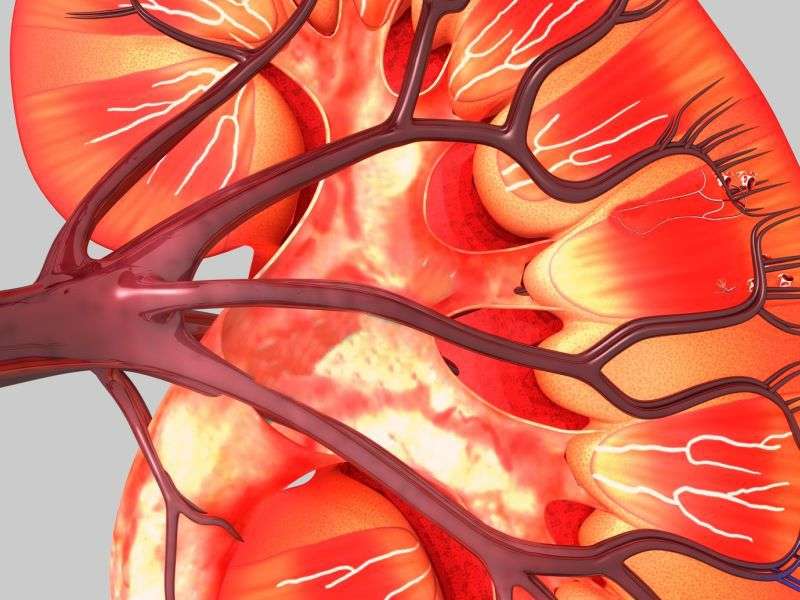Diabetes is a chronic condition that affects millions worldwide, and if left unmanaged, it can lead to debilitating complications. While managing blood sugar levels is crucial, it’s equally important to understand and address the potential complications that can arise from uncontrolled diabetes. This comprehensive guide delves into various diabetes-related complications, offering insights into prevention strategies, targeted treatments, and the importance of regular check-ups for optimal diabetes management.
Understanding Diabetes Complications – A Comprehensive Guide

Poorly managed diabetes can wreak havoc on various bodily systems, as excess glucose in the bloodstream can damage blood vessels and nerves over time. This can lead to a wide range of complications, some of which can be life-threatening if left unchecked.
Contents
- 1 Common Complications of Diabetes
- 2 Early Screening and Monitoring
- 3 Comprehensive Wound Care
- 4 Understanding Diabetic Retinopathy
- 5 Early Detection and Treatment
- 6 Treatment Options and Lifestyle Modifications
- 7 Diagnosis and Assessment
- 8 Treatment Options and Management
- 9 Risk Reduction Strategies
- 10 Treatment Options and Management
- 11 Understanding the Risk of Amputation
- 12 Comprehensive Wound Care and Limb Preservation Strategies
- 13 Understanding the Increased Susceptibility to Infections
- 14 Early Recognition and Prompt Treatment
- 15 Personalized Treatment Plans and Adjustments
Common Complications of Diabetes
Some of the most prevalent complications associated with diabetes include:
- Diabetic retinopathy (eye disease)
- Diabetic nephropathy (kidney disease)
- Diabetic neuropathy (nerve damage)
- Cardiovascular disease
- Foot ulcers and amputation risk
- Increased susceptibility to infections
Understanding these complications is the first step towards developing effective prevention and treatment strategies.
Prevention Strategies: Managing Diabetes to Mitigate Risks

A balanced diet rich in whole foods, regular physical activity, and maintaining a healthy weight can go a long way in managing diabetes and reducing the risk of complications.
Early Screening and Monitoring
Regular check-ups, including eye exams, foot examinations, and kidney function tests, allow for early detection and prompt intervention, which can significantly reduce the risk of complications.
Targeted Treatment for Diabetic Foot Ulcers: Healing and Prevention

Diabetic neuropathy, poor circulation, and high blood sugar levels increase the risk of developing foot ulcers, which can lead to serious complications if left untreated.
Comprehensive Wound Care
A multidisciplinary approach involving podiatrists, wound care specialists, and vascular surgeons is often necessary for effective treatment of diabetic foot ulcers, which may include debridement, dressings, and offloading techniques.

Proper foot care, including daily self-inspections, wearing appropriate footwear, and managing blood sugar levels, can significantly reduce the risk of developing foot ulcers in people with diabetes.
Retinopathy Management in Diabetes: Preserving Vision and Preventing Blindness
Understanding Diabetic Retinopathy

Diabetic retinopathy is a leading cause of vision loss and blindness among people with diabetes. It occurs when high blood sugar levels damage the tiny blood vessels in the retina, leading to potential vision impairment or blindness.
Early Detection and Treatment
Regular eye exams, including dilated eye exams, are crucial for early detection and treatment of diabetic retinopathy. Treatment options may include laser therapy, injections, or surgery, depending on the severity of the condition.

Maintaining optimal blood sugar levels is the most effective way to prevent or delay the onset of diabetic retinopathy. Regular check-ups and adherence to prescribed treatment plans are essential for preserving vision and preventing blindness.
Tackling Diabetic Kidney Disease: Early Detection and Intervention

Diabetic nephropathy, or kidney disease, is a common complication of diabetes that can lead to kidney failure if left untreated. It occurs when high blood sugar levels damage the tiny blood vessels in the kidneys, impairing their ability to filter waste from the body.

Regular urine tests and monitoring of kidney function through blood tests are crucial for early detection of diabetic nephropathy. Early intervention can slow or even halt the progression of kidney disease.
Treatment Options and Lifestyle Modifications
Treatment for diabetic kidney disease may involve medication, blood pressure control, and dietary modifications to reduce the workload on the kidneys. In advanced stages, dialysis or kidney transplantation may be necessary.
Neuropathy in Diabetes: Diagnosis, Relief, and Long-Term Management

Diabetic neuropathy is a type of nerve damage that can affect various parts of the body, including the hands, feet, legs, and organs. It is caused by high blood sugar levels over an extended period and can lead to numbness, tingling, and even loss of sensation.
Diagnosis and Assessment
Early diagnosis of diabetic neuropathy is essential for effective management. This may involve physical examinations, nerve conduction studies, and other tests to assess the extent and severity of nerve damage.
Treatment Options and Management
While there is no cure for diabetic neuropathy, various treatment options can help manage symptoms and prevent further nerve damage. These may include medication, physical therapy, lifestyle modifications, and the use of assistive devices for mobility and pain relief.
Cardiovascular Complications in Diabetes: Risk Reduction and Treatment Options

People with diabetes are at an increased risk of developing cardiovascular complications, including heart disease, stroke, and peripheral artery disease. This is due to the damaging effects of high blood sugar levels on blood vessels and the increased prevalence of other risk factors, such as obesity and high blood pressure.
Risk Reduction Strategies
Adopting a heart-healthy lifestyle, including a balanced diet, regular exercise, and smoking cessation, can significantly reduce the risk of cardiovascular complications in people with diabetes. Maintaining optimal blood sugar, cholesterol, and blood pressure levels is also crucial.
Treatment Options and Management
For individuals with existing cardiovascular complications, treatment may involve medication, interventional procedures (such as angioplasty or stenting), or surgical interventions, depending on the severity and location of the condition.
Amputation Prevention in Diabetes: Strategies for Wound Care and Limb Preservation
Understanding the Risk of Amputation
Diabetic foot ulcers and poor wound healing, if left untreated, can lead to serious infections and potentially result in the need for amputation. This risk is heightened in individuals with peripheral artery disease or neuropathy.
Comprehensive Wound Care and Limb Preservation Strategies
A multidisciplinary approach to wound care, involving podiatrists, vascular surgeons, and other specialists, can significantly reduce the risk of amputation. This may include debridement, offloading techniques, advanced wound dressings, and revascularization procedures to improve blood flow.

Proper foot care, including daily inspections, wearing appropriate footwear, and managing blood sugar levels, can greatly reduce the risk of developing foot ulcers and subsequent amputation.
Diabetes and Infections: Recognizing and Managing Elevated Risks
Understanding the Increased Susceptibility to Infections
People with diabetes are more prone to infections, including respiratory infections, urinary tract infections, and skin infections. This is due to the compromised immune system and the potential for poor wound healing associated with uncontrolled blood sugar levels.
Early Recognition and Prompt Treatment
Recognizing the signs and symptoms of infections and seeking prompt medical attention is crucial for individuals with diabetes. Early treatment can prevent the progression of infections and reduce the risk of complications.

Maintaining optimal blood sugar control, practicing good hygiene, and adopting lifestyle modifications, such as quitting smoking and maintaining a healthy weight, can help support the immune system and reduce the risk of infections.
The Importance of Regular Check-Ups in Diabetes Management
Regular check-ups with a healthcare team, including an endocrinologist, ophthalmologist, podiatrist, and other specialists as needed, are essential for monitoring and early detection of potential complications. These check-ups may include various tests and examinations tailored to an individual’s specific needs.
Personalized Treatment Plans and Adjustments
Regular check-ups provide an opportunity for healthcare providers to assess the effectiveness of current treatment plans and make necessary adjustments based on an individual’s changing needs and health status.

Healthcare providers can offer valuable counseling and education during regular check-ups, empowering individuals with diabetes to better understand their condition, adhere to treatment plans, and make informed lifestyle choices.
Conclusion
Diabetes is a complex condition that requires comprehensive management to prevent and treat potential complications. By understanding the various complications that can arise, adopting prevention strategies, and seeking targeted treatments when needed, individuals with diabetes can significantly improve their overall health and quality of life.
Regular check-ups and close collaboration with healthcareprofessionals are crucial components of effective diabetes management. Through early detection, personalized treatment plans, and ongoing education, individuals with diabetes can proactively address potential issues and work towards optimal health outcomes.
By focusing on prevention, early intervention, and holistic care, the impact of diabetes complications can be minimized, leading to better long-term health and well-being. It is essential for individuals with diabetes to prioritize their health, stay informed about their condition, and actively participate in their care to achieve the best possible outcomes.
In conclusion, managing diabetes and its associated complications requires a multifaceted approach that encompasses regular monitoring, lifestyle modifications, targeted treatments, and a proactive mindset towards health. With the right strategies in place and a strong support system from healthcare providers, individuals with diabetes can navigate the challenges posed by the condition and strive for a healthier future. Remember, you are not alone in this journey – seek help, stay informed, and take control of your health to live your best life with diabetes.
“Take control of your health with IC-5! Manage your diabetes effectively and live your best life. Start your journey to better health today!”





